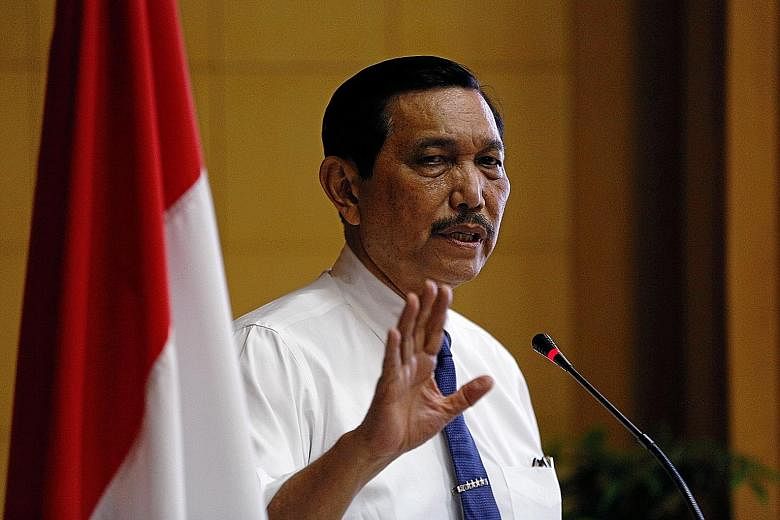Indonesian intelligence officials are tracking the movements of Uighurs in the Riau Islands, over fears that they may join local militant groups and mount attacks in the country.
The authorities in Indonesia are also bracing themselves for reprisals for the killing of the terrorist Santoso, who was shot dead by soldiers on Monday.
Spy chief Sutiyoso said remnants of the East Indonesia Mujahideen (MIT) or other militant groups can be expected to retaliate following the death of Santoso, their leader, but it was still too early to tell.
"There is no potential threat yet but our security forces are waiting for them to strike back," he said.
Institute for International Peace Building director Taufik Andrie agreed, adding that "while morale of the MIT may be affected, it will continue its resistance".
Meanwhile, Indonesia is concerned that suspected Uighur militants have surfaced in the Riau Islands. "Uighurs have entered that area. We are monitoring (the situation)," security czar Luhut Pandjaitan said yesterday when asked if the authorities detected the presence of a terror cell in the province.
The Coordinating Minister for Political, Legal and Security Affairs declined to elaborate further. But militants from the Muslim ethnic group in China have been known to make the long journey from the far western Chinese region of Xinjiang to join Islamist extremists in Indonesia.
When asked if Uighur militants will still be drawn to Indonesia with Santoso dead, counterterrorism and security expert Susan Sim said unless the training camp he set up in the Central Sulawesi jungle is dismantled, it will still be seen as a safehaven for militants seeking to acquire or impart skills.
Previous reports had indicated that up to eight Uighurs may have successfully linked up with Santoso in the jungles of Poso, Central Sulawesi, before he was killed.
Counterterrorism analyst Adhe Bhakti said Uighurs have previously infiltrated Indonesia using small seaports across the Riau Islands archipelago. Others had used fake passports to enter the country by boat via North Kalimantan.
The latest development revealed by Mr Luhut comes just two days after Santoso was shot dead by army troops during a firefight outside a village in Poso on Monday.
While his death closes a chapter of Indonesia's bitter war against extremism, the fight still rages on.
Central Sulawesi deputy police chief Leo Bona Lubis told reporters at a separate briefing that Basri, a member of the MIT who has a long history of militancy, will likely take over from Santoso as leader.
Initially thought to have been killed alongside Santoso on Monday, Basri, also known as Bagong, is said to be hiding deep in the Poso Pesisir Utara jungle with the remaining MIT members.
According to a report in The Jakarta Post yesterday, Basri was jailed for mutilating a student in Poso, but escaped and joined Santoso's group in 2013, becoming his second-in-command.
Another challenge for Indonesia's war on terror is the emergence of "lone wolf" terrorists, said Mr Luhut. He added that such individuals, like the suicide bomber who tried to blow up a police station in Solo on July 5, "are beyond our control".
"Look at Nice - the perpetrator was not even on the militant watchlist, as was the case in Germany," he said, referring to recent terror attacks in Europe.
Mr Luhut added that Parliament needed to pass a draft Bill which expands police powers in counterterrorism as soon as possible.
Separately, two-star police general Suhardi Alius was yesterday sworn in as head of the National Counterterrorism Agency (BNPT) by President Joko Widodo.
He took over from General Tito Karnavian who was recently promoted to national police chief.
The former chief secretary of the National Resilience Institute, or Lemhanas, will oversee Indonesia's efforts in eradicating terrorism and radicalism. •Additional reporting by Wahyudi Soeriaatmadja
Correction Note: This article has been edited for clarity.

